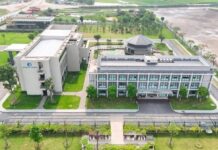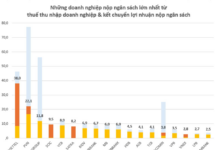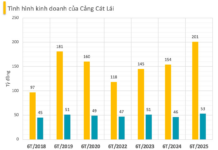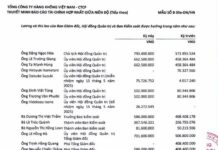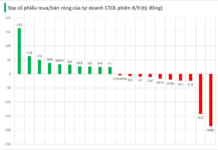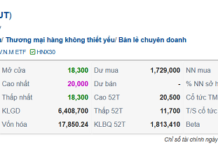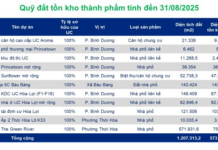During the seminar “Removing obstacles to the development of social housing,” Mr. Ha Quang Hung, Deputy Director of the Department of Housing Management and Real Estate Market, Ministry of Construction, stated that the National Assembly has issued laws on housing, real estate business, and Land Law…in effect from January 1, 2025.
However, the Government recently directed the ministries and sectors to prioritize drafting legal documents for early submission to the National Assembly, bringing these laws into effect from July 1, 2024 – half a year sooner.
According to Mr. Hung, the Ministry of Construction has completed the draft decree on social housing development, and will submit it to the Ministry of Justice for review, finalization, and submission for feedback from government members in early May.
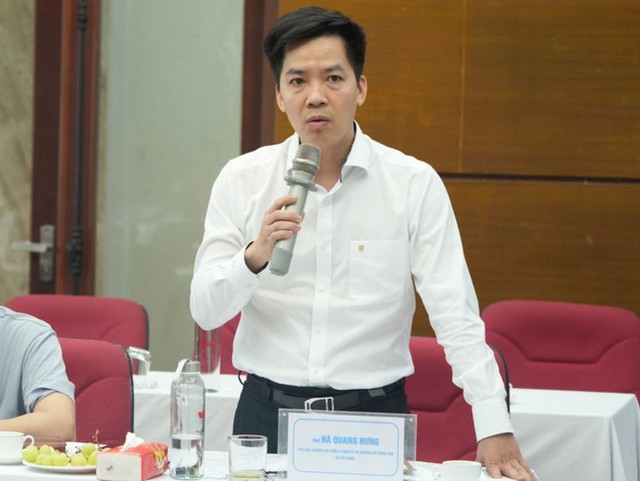
Mr. Ha Quang Hung, Deputy Director of the Department of Housing Management and Real Estate Market (Photo: Tien Phong)
Mr. Hung said that this decree contains many new provisions.
Regarding land fund, the law stipulates that provincial-level People’s Committees will allocate sufficient land funds based on social housing demand targets. This includes two types of land funds: independent land funds and 20% housing land in commercial housing projects.
The investment procedures have also been streamlined compared to before, with very specific guidelines serving as a basis for localities to implement in a unified manner. This avoids the situation where each locality follows different procedures, as has been the case in the past. Administrative procedures have been streamlined. Specifically, investors are automatically exempt from land use fees and no longer have to apply for exemption as before.
In terms of preferential policies, the Housing Law and the decree have been revised to allow investors to earn a 10% profit on social housing investments. For the 20% land used for commercial services, investors will receive all profits from these commercial activities without having to pool them into the project, providing greater incentives.
The purchase price and purchase price are also clearly defined in the structure of social housing prices.
Regarding the procedures for buying and selling, the Deputy Director of the Department of Housing Management and Real Estate Market said that the upcoming decree stipulates that in addition to direct lottery draws, online lottery draws may also be held, eliminating the need for people to queue up early to participate in the lottery as in the past.
Regarding the conditions for buying and renting, the new law has streamlined the conditions. Specifically, the conditions for buyers have been reduced by one, leaving only two conditions: housing and income; and the conditions for renters have been eliminated, requiring only that they belong to the groups specified in the law.
Regarding income conditions, the Ministry has studied and incorporated feedback. The draft decree proposes a new approach, whereby single people with an income of 15 million VND will qualify. For households, a total income of no more than 30 million VND for a couple will be sufficient to qualify. This income level can be certified by the place of work without the need to visit the tax authorities.
Speaking at the seminar, Deputy Minister Nguyen Van Sinh said that localities have also been actively involved. Many provinces and cities have focused on allocating land funds for social housing investment. Nationwide, 1,316 land parcels with a total area of 8,600 hectares have been planned for social housing development, with many localities allocating large land funds, such as Ho Chi Minh City, Hanoi, Dong Nai, Long An, Hai Phong…
The Deputy Minister of Construction reported that, in terms of social housing investment results, 499 projects with a scale of 411,000 apartments are currently being implemented across the country. These results demonstrate the initial effectiveness of the efforts made by all levels, sectors, and localities.
Deputy Minister Nguyen Van Sinh also frankly stated that there are certain difficulties in the process of developing social housing.
First, businesses and investors still face difficulties in accessing land funds.
Second, access to capital remains challenging. Administrative procedures, especially in the areas of construction investment, selection of investors, and price approval, are still time-consuming, affecting the investment process of businesses. The effectiveness of social housing investment remains low, making it unattractive to investors. Many provinces and cities have a high demand for social housing due to the presence of numerous industrial parks, but the implementation of projects is very low.
The disbursement of the 120 trillion VND credit package has been low due to several factors, including the failure of some projects to meet requirements and the failure of some businesses to meet credit conditions.
The Deputy Minister of Construction stated that, given the above situation, the Government, the Prime Minister, and the Ministry of Construction have issued directives and urged localities and businesses to actively participate in social housing projects. Ministries and sectors have been actively working to remove legal and institutional barriers related to land and housing regulations. Regarding capital sources, the State Bank of Vietnam is also actively working to resolve difficulties for businesses and projects, actively rescheduling and extending debts, and organizing conferences to facilitate access to capital and promote social housing investment.
Mr. Sinh reported that the Ministry of Construction, together with other ministries and sectors, has been actively working with localities to resolve issues, provide guidance, and urge localities to actively implement social housing projects, with the aim of completing the target of 1 million social housing units. Mr. Sinh said that discussions have been held with the provinces of Bac Ninh, Dong Nai, Binh Duong, Hanoi, Ho Chi Minh City, Hung Yen, Thai Nguyen… The discussions revealed that some localities are very active in this area and will meet the targets set for 2024 as per Resolution 01. Other localities need to be more proactive in developing social housing.












